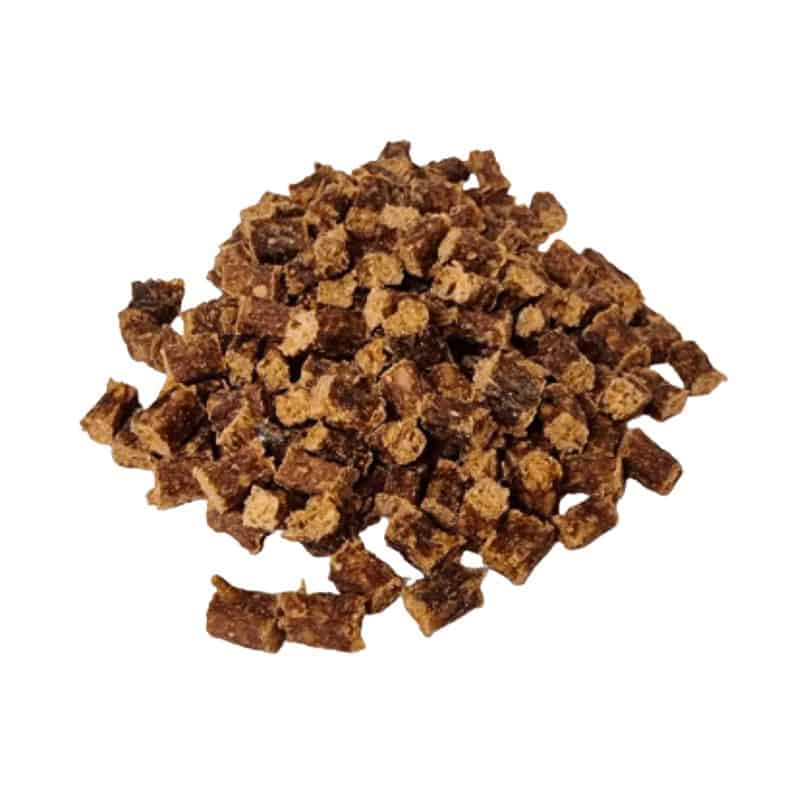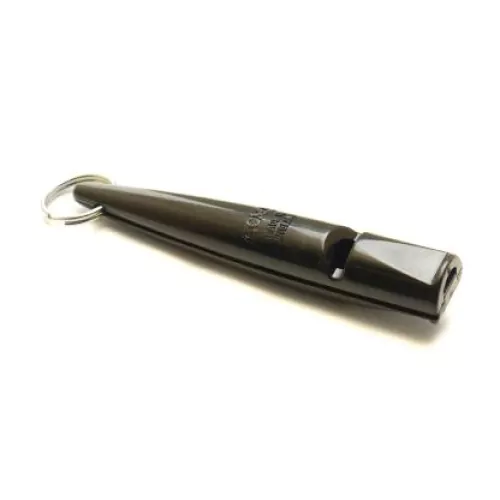In Depth Annual Dog Vaccination Dangers
How Often Do You Have Your Dog Vaccinated?
if you found this article interesting please sign up for my Newsletters and get all my latest articles, information and comments.
Newsletter Sign Up

This is an in-depth analysis of the very real dangers of dog and cat vaccinations.
If you want a general overview. (1) Overview Annual Dog Vaccination Dangers at the bottom of the article
I have put off writing this article for some time, though my conscience told me to write it many years ago.
So why did I delay? I was concerned that the facts were not medically proven, and that all I was reading was scare stories.
I needed to be 100% certain, that I was not putting even one dog at risk by airing my concerns about annual vaccinations.
What has triggered me into this, was a report by the PDSA. It basically blamed the owner for all health problems that occur in a dog’s life.
I disagreed with that and wrote a (2) Rebuttal saying I applauded what they did, but did not agree with where they pointed the finger of blame. This was picked up by Pet Trade Xtra and printed in their weekly online trade information circular.
I was subsequently attacked, not by the PDSA, but by a Vet called Caroline Allen, Clinical Director at Canonbury Veterinary Practice in London. Ms Allen stated. “It is a shame to see individuals using this important report to play a ‘blame game’ and spread unsubstantiated scare stories.” See (3) Caroline Allen.
Certainly, not all Vets agree with Ms Allen for instance, Dr Robert Foley and Dr Michael Ferber both well-respected Vets, firmly believe that annual vaccinations are seriously harming our pets. Therefore, the Vets that are still administering annual core vaccinations are clearly not following their professions creed. They used to swear a solemn oath when they become a Vet “primum non nocere” “first do no harm” Now the oath is more an Oath of Fealty to their veterinary profession and governing organisation. (4) Angry Vets. Are these Vets liars? I prefer to see them as honest and caring. The only reason a vet would administer annual vaccinations for core vaccines against vaccine manufacturers and BVA guidelines except for MONEY. I would personally leave any vet that put an animal at risk by overvaccination when they are not following their own and the vaccine companies guidelines.
The biggest Vaccine supplier in the UK was Intervet. now known as MSD Animal Health In all probability, it will be their vaccines that will be used when you visit your Vet. MSD Animal Health clearly states, and have done since 2010. “The main core vaccines should not be more than once every three to four years.” That is a fairly bold statement. It does not suggest that the Vets should decide for themselves when they should vaccinate. I will repeat. Should not be more than once every three years
The BVA (British Veterinary Association, whom I contacted, wrote to me and stated: “The duration of immunity (DOI) for each medicine or product is different and veterinary surgeons must keep up to date with this information.” In 2010 the Veterinary Medicines Directorate (VMD) wrote a letter to the two major veterinary publications Veterinary Record and Veterinary Times, explaining that recent trends in data mean that the DOIs for a number of common vaccinations (canine distemper, parvovirus, and adenovirus) are now three to four years. This is information that veterinary surgeons will be aware of and will be following.”. I am not convinced that they are following this protocol. are you?
The Real Dangers of Overvaccination
This is a list compiled by veterinary immunologist Dr Ronald Schultz. Schultz is professor and chair of pathobiological sciences at the renowned School of Veterinary Medicine, He has been studying the effectiveness of canine vaccines since the 1970s; he’s learned that immunity can last as long as a dog’s lifetime
Dr Schultz has vaccinated thousands of animals during his clinical research and although he advocates vaccines, he tempers that recommendation with a realistic view of their inherent dangers.
Here is Dr Schultz’ list:
Common Reactions:
1. Lethargy
2. Hair Loss, Hair Color Change at Injection Site
3. Fever
4. Soreness
5. Stiffness
6. Refusal to Eat
7. Conjunctivitis
8. Sneezing
9. Oral ulcers
Moderate Reactions:
1. Immunosuppression
2. Behavioral Changes
3. Vitiligo
4. Weight Loss (Cachexia)
5. Reduced Milk Production
6. Lameness
7. Granulomas/Abscesses
8. Hives
9. Facial Edema
10. Atopy
11. Respiratory Disease
12. Allergic uveitis (Blue Eye)
Severe Reactions Triggered by Vaccines:
1. Vaccine injection site sarcomas
2. Anaphylaxis
3. Arthritis, polyarthritis-HOD hypertrophy Osteodystrophy
4. Autoimmune Hemolytic Anemia
5. Immune-Mediated thrombocytopenia (IMTP)
6. Hemolytic Disease of the newborn (Neonatal Isoerythrolysis)
7. Thyroiditis
8. Glomerulonephritis
9. Disease or Enhanced Disease which with the vaccine was designed to prevent
10. Myocarditis
11. Postvaccinal Encephalitis or polyneuritis
12. Seizures
13. Abortion, congenital anomalies, embryonic/fetal death, failure to conceive
“Safety studies on vaccinations are limited to short time periods only: several days to several weeks,” says Dr Harold Buttram MD. “There are NO (NONE) long term (months or years) safety studies on any vaccination or immunisation. For this reason, there are valid grounds for suspecting that many delayed-type vaccine reactions may be taking place unrecognized as to their true nature”.
The AVMA and AAHA continue to recommend over-vaccination for our pets, despite the fact that there is scant evidence that they prevent less disease than they cause. Is this because they are not aware of the potential dangers of vaccines?
It’s not a warm and fuzzy feeling, thinking that the veterinary associations don’t understand the dangers associated with vaccines. But it beats the alternative: that they are aware of the dangers but recommend over-vaccination anyway.
My grateful thanks to
Dogs Naturally Magazine for the Shultz information
People do not need or have yearly revaccinations. |
(10) (11) Once a year, Ronald Schultz checks the antibody levels in his dogs’ blood. Why? He says for proof that most annual vaccines are unnecessary. Schultz, professor and chair of pathobiological sciences at the School of Veterinary Medicine has been studying the effectiveness of canine vaccines since the 1970s; he’s learned that immunity can last as long as a dog’s lifetime, which suggests that our “best friends” are being over-vaccinated.
May I point out that I do not do unsubstantiated, and I certainly do not make statements without extensive research This is by Richard B. Ford, DVM, MS, DACVIM, DACVPM (Hon) Professor of Medicine, NCSU College of Veterinary Medicine. in 2005. This is just a snippet. The link can be found at the bottom of this page.
(9) “Among the most important issues facing practitioners today is that of vaccine safety. For most vaccines on the market today, it must still be assumed that the benefits of vaccination, when performed in accordance with currently published recommendations far outweigh the risk of vaccine-induced illness or disease. “
“However, recent reports have raised concerns within the profession over the relationship between vaccination and delayed adverse events, specifically vaccine-associated fibrosarcoma in cats. [REFs: 14, 15] and immune-mediated disease in dogs. [16,17] Determining which vaccines pose a risk to which animals, and when, simply cannot be determined with the information available today.”
We are 8 years on from that learned pronouncement. We now know far more about the effects of these vaccines, and how long their efficiency lasts. In this article, I am hoping to prove the very real dangers of some of the practices regarding dog and cat vaccinations in the UK and the World. Remember these people are top of their field. They are professors and chairs of Veterinary Schools of Medicine and are in some cases the leading experts in the field of veterinary immunology.
Robert Shultz is one of the Worlds leading professors in pathobiological sciences and immunology. Hardly an unsubstantiated source.
I believe that in some cases, Vets could be instrumental in some of not many of the ill health and behavioural problems in our dogs today. Figures show that in some veterinary practices, vaccinations make up to 40% of that practices annual earnings.
This information is not new. As long ago as 2004 the BBC reported that a group of vets had issued a (5) Health Warning 30 prominent UK vets got together to issue a warning that said. “The present practice of marketing vaccinations for companion animals may constitute fraud by misrepresentation, fraud by silence and theft by deception”
| Is your dog pulling on the Lead, Unruly, Bad Recall, Aggressive on Lead, Jumping Up? See my article and Video Clips on how to stop this. The Jingler |

What Are Vaccines
A vaccine is one or more disease antigens that, when injected into a dog’s body, causes his immune system to produce specialised proteins known as immunoglobulins or antibodies.
Antibodies fight infection and disease and neutralise the antigens by binding to them.
The cells that created the antibodies (a form of white blood cell) have a memory of the antigen so that when the antigen is encountered again, the cells’ “memory” enables them to rapidly produce more antibodies i.e. to mount immunity against that pathogen.
The most common dog vaccination is a combination cocktail called DHLPPC which includes pathogens for:
• Distemper
• Adenovirus-2
• Leptospirosis
• Parainfluenza
• Parvovirus
• Coronavirus
all in a single injection. Other vaccinations are often given at the same time are:
• Rabies
• Bordatella (Kennel Cough)
• Lyme Disease (Leptospirosis)
• Giardia
Vaccinations are thought to sometimes overstimulate the immune system, causing it to malfunction. They are contraindicated for dogs with already suppressed immune systems. modified live Vaccines (MLVs) have the potential to revert to the virulent form of the disease.
Studies have shown that most canine vaccinations provide immunity from seven years to life if given when a dog’s immune system is mature. However, it appears that vaccinations also have considerable potential for harm.
In 2002, a landmark report published by the American Veterinary Medical Association (AVMA) Council on Biologic and Therapeutic Agents (COBTA) stated in part, “…the practice of re-vaccinating animals annually is largely based on historical precedent supported by minimal scientific data; unnecessary stimulation of the immune system does not result in enhanced disease resistance and may expose animals to unnecessary risks…”.
 Here we are, many years later, and we are still over-vaccinating our dogs. In my personal belief, this is unnecessary and potentially dangerous to the health and welfare of our pets.
Here we are, many years later, and we are still over-vaccinating our dogs. In my personal belief, this is unnecessary and potentially dangerous to the health and welfare of our pets.
Have You Checked Your Vaccine Certificate?
Check your vaccine certificate now! Does it say that your dog has been vaccinated for things like parvovirus, distemper, or canine hepatitis? Have these been given yearly?. If so, your vet is not adhering to the recommendations of the Vaccine manufacturers and the BVA.
The internationally respected World Small Animal Veterinary Association (WSAVA) issued guidelines in 2009 stating quite clearly that these core vaccines should normally be expected to last for life. This is their (6) WSAVA Protocol
Look at the BSAVA the British Small Animal Veterinary Association. This is their (7) BSAVA Protocol.
How often do you take your dog for vaccinations? Do you get a reminder a few weeks before your annual checkup, If so check your vaccination card and see what has actually been vaccinated?
Are you aware that the Vaccine companies state that these vaccinations should be every three years? However, there are exceptions to this, the main one being Leptospirosis, more commonly known as Weil’s disease which a far dangerous part of this disease. More about the efficiency of that later.
Leading immunologist Dr Ronald Schultz states: “It has been common practice since the development of canine vaccines in the late 1950′s to administer them annually. The recommendation to vaccinate annually was based on the assumption that immunity would wane in some dogs, thus to ensure immunity in the population, all dogs required revaccination since it was not practical to test each animal for an antibody.
“Little or no research has been done to demonstrate that the practice of annual revaccination has any scientific value in providing greater immunity than would be present if an animal was never revaccinated, or was revaccinated at intervals longer than one year.”
“In 1978 we recommended an ideal vaccination program would be one in which dogs and cats would be revaccinated at one year of age and then every third year thereafter. That recommendation was based on general knowledge of vaccinal immunity, especially the importance of immunologic memory and on the duration of protection after natural subclinical or clinical infections as well as on limited studies we had performed with certain canine and feline vaccines.”
“Since the mid 1970′s, we have done a variety of studies with various canine vaccines to demonstrate their duration of immunity. From our studies, it is apparent, at least to me, that the duration of immunity for the four most important canine vaccines (core vaccines) is considerably longer than one year. Furthermore, we have found that annual revaccination, with the vaccines that provide long-term immunity, provides no demonstrable benefit and may increase the risk for adverse reactions.”
When Vaccination May Be Especially Dangerous
Intervet, the UK’s biggest-selling veterinary vaccine manufacturer warns, in its datasheets, that “immunocompetence may be compromised by a variety of factors if:
1. the dog is genetically defective
2. there is something wrong with the dog’s diet
3. the dog is unhealthy when vaccinated
4. the dog is stressed at the time of injection
5. the dog’s immune system is incompetent
6. the dog is exposed to a virus before or immediately after vaccination
7. the dog is taking immune suppressant drugs such as steroids
8. the vet administers the vaccine inappropriately
9. the dog is incubating disease at the time of vaccination
“Immunocompetence may be compromised” means that the immune system may not be functioning properly, in which case the animal will be unable to mount a defence against the vaccine challenge. Yet Ms Allen states that this is just hearsay and unsubstantiated scare stories. Really! This is the manufacturers of the vaccines saying this. Should they not know better than just a vet?
Reporting Systems
There is NO adequate adverse reaction reporting scheme in the UK or anywhere else for that matter for companion animals – However, it is has been pointed out to me that there is now a yellow card system for Humans since the pandemic Yellow Card however It is impossible to say with any degree of truth that only a ‘tiny minority’ have adverse reactions.”
Frightening. Some Vets are stating categorically that there is no adverse reaction to vaccines. Ms Allen says it. Yet there appears to be no required system in place that monitors this. Why would there be, if the vaccinations are the cash cow I believe them to be.
Vets have been trained to look for an immediate reaction – where the dog is fatally allergic to the vaccine. In the event of a massive allergic reaction – anaphylactic shock – the vet is advised to inject adrenaline into the animal to save his life.”
The human Vaccine Damage Compensation Unit has paid £millions to parents whose children were made epileptic by vaccines In the UK, vets are asked (not compelled) to report adverse reactions if they suspect an adverse vaccine reaction. If a dog falls down having an epileptic fit within half an hour, ten days, or a month of vaccination, the vet very often fails to suspect a link – even though vaccines are known to cause epilepsy Even if the vet does suspect a link, there is no law to make him report the suspected reaction. Many vets are too busy to complete the necessary paperwork or seek to avoid being bothered by vaccine company representatives.
Possible Medical Problems
Research papers published by eminent scientists and leading immunologists show that diseases can be caused by vaccines. How can your Vet put down vaccine reaction to illnesses that may surface later, such as:
Autoimmune haemolytic anaemia
A dreadful disease that usually kills a dog within days. The progress of the disease closely resembles the last stages of AIDS. Scientists in America published a paper during 1997, saying that there is strong evidence to link this disease with ANY vaccine.
Cancers
Dr Denis W Macey was reported in an American veterinary paper as saying that up to 22,000 cats develop cancer at the site of vaccination every year in the USA. American cats are now being vaccinated in the tail or leg so that they can cut it off when it becomes cancerous.
Genetic defects
Dr Larry Glickman at Purdue University has found that routinely vaccinated dogs develop autoantibodies to a wide range of their own biochemicals, including DNA. The significance of this study is immense. It means that vaccines cause genetic defects.
Thyroid disease
Can be caused by vaccines, and it then becomes an inheritable condition. Once a dog has underlying thyroid disease, he or she only needs a trigger – from a vaccine, an environmental pollutant, from stress, or from dietary inadequacies – to develop full-blown life-threatening autoimmune diseases.
Leukaemia
Dr Jean Dodds, one of the world’s foremost experts in canine vaccine reactions, writes: “Recent vaccinations with single or combination modified live-virus (MLV) vaccines are increasingly recognised contributors to immune-mediated blood diseases, bone marrow failure, and organ dysfunction.” (2) Dr Dodds lists leukaemia, thyroid disease, Addison’s disease, diabetes, and lymphoma as diseases that can be triggered by vaccines.
Parvovirus
Yes, parvovirus was created by vaccines. This disease didn’t exist prior to the 1970s. In fact, scientists tell us it was created by vaccine manufacturers who cultured the distemper vaccine on cat kidneys that were infected with feline enteritis. This cat-enteritis-diseased distemper vaccine was then injected into dogs around the world, and parvovirus reared its ugly head around the world at the same time. A naturally occurring epidemic would spread slowly across continents. Parvovirus appeared with a big bang, in line with multi-national vaccine company distribution policies.
Arthritis
There are numerous scientific studies linking arthritis with vaccination. Vaccine components have even been isolated in the bones of arthritis sufferers post-vaccination.
Allergies
There are many, many research papers showing a link between allergies and vaccines. Animals with a genetic predisposition to allergies (‘people’ from families with a history of irritable bowel syndrome/Crohns disease/enteritis, asthma, hay fever, eczema, attention deficit disorder, and so on), can become more allergic, or become highly sensitised, when you inject foreign proteins (serums and organ tissue contained in vaccines) into them. Flea bite allergy? Apparently, that’s caused specifically by vaccine damage.
Efficiency Of Vaccines
If true then this following information is quite frightening. (1) A study conducted by Canine Health Concern during 1997, involving 4,000 dogs, showed that 68.2% of dogs in the survey with parvovirus contracted it within three months of being vaccinated.
Similarly, 55.6% of dogs with distemper contracted it within three months of vaccination; 63.6% with hepatitis got it within three months of vaccination; 50% with parainfluenza contracted it within three months of vaccination, and every single dog with leptospirosis contracted it within that three-month time-frame.
So vaccines represent – at best – only a 50/50 chance of protection. But if you doubt the validity of the CHC survey, ask around. It won’t take long to find people whose dogs contracted these diseases shortly after being vaccinated or humans who contracted diseases right after the jab.
Leptospirosis
We are often told that leptospirosis, (the serious form of this is called Weill’s disease) is a virulent and common disease in this country and that it is important to vaccinate against it yearly. I wonder if someone could explain why? All the reference material I have read have stated that this is clearly not the case.
(4) (5) (6) Leptospirosis is actually very rare. Apart from that, leptospirosis has a range of hundreds of bacterins; the chance of the strain in the needle matching the strain in the field is actually quite remote. The vaccine only confers protection for between three and six months, leaving vaccinated dogs ‘unprotected’ for up to six to nine months. So why are we told that we need to vaccinate annually? In fact, Caroline Allen, Clinical Director at Canonbury Veterinary Practice in London, stated that it confers immunity for 14 months. Really! I would be very interested to know where that information came from.
Eminent scientists in both the UK and America have called for the withdrawal of this vaccine because it is ineffective to most of the strains of this disease. Is that is why every single dog with lepto in CHC’s survey, contracted it within three months of being vaccinated?
One of the leading professors of immunology is Dr RD Shultz, professor, and chair of the Department of Pathobiological Sciences, School of Veterinary Medicine, University of Wisconsin. His expertise is in Immunopathogenesis of viral diseases; developmental aspects of immunity; effects of environmental factors on immune systems; Studies are ongoing in the development and/or testing of various adjuvants and vaccines for numerous bacterial and viral diseases of domesticated species. Basically, I am saying that he really knows what he is talking about.
He has written many papers regarding vaccinations and immune-mediated medical problems and is one of the most well-respected experts in his field. He states that he never vaccinates his own dogs for leptospirosis, even though he lives in a high-risk area.”
(7) According to his survey on vaccination programs, “Approximately 30% of veterinary practices do not vaccinate for leptospirosis. The responding practitioners either didn’t believe that leptospirosis was a significant problem in their area or the vaccine containing L. canicola and L. icterohaemorrhagiae serovars failed to provide protection.”
I found this research interesting from Dr Arnold Plotnick, D.V.M. (8) “Leptospirosis is a zoonotic (potentially contagious to humans) disease that affects the kidneys and sometimes the liver. It is caused by the bacterium Leptospira interrogans. The core vaccine that contains distemper, adenovirus, parainfluenza and parvovirus is also available with the leptospirosis organism”.
“However, the Leptospirosis portion of the vaccine is the most reactive fraction of the combination core vaccine and is a common offender in causing severe adverse vaccination reactions in dogs. In addition, the immunity conferred by the leptospirosis portion is believed to be short-lived, probably six months or less. For these reasons, we do not recommend the leptospirosis vaccine be routinely administered to all dogs.”
The World Small Animal Veterinary Association (WSAVA) also ruled that leptospirosis vaccines “can be associated with adverse reactions” and are “associated with as many or more adverse reactions that occur for any other” optional vaccine on the market. It is my belief that this vaccine is the most virulent and contentious of all the vaccine and it has been stated that this vaccine causes more aversive reactions than any or all of the other vaccinations.
This is one of the articles seen in the Telegraph. (8) Dog Owners Concerns On Vaccination Deaths.
Let me point out here that the vast majority of our vets are following the guidelines stated by the BVA, and the Vaccine companies themselves. Certainly, my own Vet does, and he questions why his clients want to neuter. He is against neutering for neutering sake and does not believe dogs should be neutered before maturity. That is certainly one of the reasons he is my vet and has been for almost 30 years.
There is another aspect to this vaccination problem. Boarding kennels and catteries are insisting that up to date YEARLY vaccination certificates are produced before they will board your dogs. That is putting your pets at risk, and may actually help to spread the very diseases they are so concerned about.
Are Insurance Companies and Local Council To Blame
I have just found out why the Boarding Kennels and Catteries are insisting on annual core vaccinations. Their insurance companies and local licencing officers are insisting on annual vaccination protocols.
This is against all recommendations by the BVA and the vaccination manufacturers plus the major immunology experts in the World. Why? I spoke to Cliverton, one of the insurance companies insisting on annual vaccination protocols. The lady in charge of the kennels and catteries side of Clivertons did not seem fazed or concerned.
She started to blame the local councils, saying insurance companies had to follow the council’s lead. Since when do insurance companies disregard medical manufacturers and the BVA guidelines in favour of local council guidelines?
However, she then stated that even if the local council did not insist on annual vaccination their policy would still be void if they did not have yearly vaccinations She stated that three Vets locally to her, all insisted on annual core vaccinations. When I pointed out they were acting against the guidelines of their governing body and manufacturers, she put the phone down saying I was raising my voice. I see that the caring sharing Cliverton has pets best interests at heart.
Given that Clivertons are the specialist insurance cover to animal-related trades I would have thought they would have known better. Apparently not!
I intend to contact all of the governing bodies that license these type of premises. These are local councils. In the meantime, none of my dogs will go into boarding kennels. I always use a home boarding service. These do not insist on outdated and outmoded criteria, that could put your pet at risk of serious health issues, that could end up killing your pet.
This is a case of a severe reaction called vaccine-induced meningoencephalomyelitis, caused to a rabies booster jab that happened in January 2012 and is ongoing. This terrible disease has also been laid at the doorstep of the leptospirosis jab Click (9) Leptospirosis Vaccination
In Conclusion
It appears from in-depth research and ongoing studies from veterinary hospitals and leading veterinary professors of immunology, that over-vaccinating can be the cause of some serious health problems, and even death in our cats and dogs. More research must be done. But who is going to fund it? The Vets, Vaccine Companies, BSAVA or the BVA?. I doubt it. Money profit and financial gain drive this disgraceful practice.
I believe that if this over-vaccination continues, the veterinarian profession may bring them into disrepute. No animal should suffer because of financial requirements. The case against the Vets that are over-vaccinating. Despite the recommendations of the vaccine companies and governing bodies is clear. I believe they should be struck off.
Research, especially from the USA and the World Small Animal Veterinary Association (WSAVA) points to vaccines lasting, at least, seven years and sometimes life. Yet we often vaccinate yearly or vaccinate for diseases that are rare. Arthritis, Allergies (both food and skin), Cancers, Thyroid Dysfunction, Behavioural Problems and Immune System Breakdowns, have been laid at the doorstep of the vaccines, that are supposed to protect our pets.
Let me state clear and loud. I am not a Vet and I am not against vaccinations. I am against unnecessary vaccinations, that could be doing more harm than good. I believe that all puppies should be vaccinated. After that, I personally have the choice of vaccinating every three or four years (BVA) or having titer tests done to check the dog’s immunity.
In reality, I never vaccinate again though I do have a Titer test in dogs that are over 7 years old. Just in case. My decision is personal and comes from my experience and study. I do not appreciate Caroline Allen, Clinical Director at Canonbury Veterinary Practice in London accusing me of unsubstantiated scaremongering when that is exactly what she was doing.
Perhaps she could tell me how many cases the Canonbury vets have treated for Leptospirosis in the last 5 years.
Canonbury and Ms Allen probably make a reasonable profit from the sale and administering of vaccines to their clients. I will leave it up to you to decide whether Ms Allen really has her clients best interests at heart.
(2) “By titering, one can assess whether a given animal’s humoral immune response has fallen below levels of adequate immune memory. In that event, an appropriate vaccine booster can be administered”. This is an excellent article by Dr W. Jean Dodds, DVM the World respected expert and founder of Homeopet. Click (10) Homeopet
Our local council licencing offices tasked with overseeing kennels and catteries are woefully inept at picking up medical changes as are insurance companies. One would think that both of these organisations would be up to speed. Yet it is apparent that they are ignorant of the consequences of their actions. This MUST be changed immediately. No more animals should suffer or die because of their deplorable lack of knowledge of the business they are tasked to oversee or insure.
I have just buried our cat that died from old age and a massive stroke, she was 22 years old. She was vaccinated as a kitten. I did not vaccinate again because of the risk of cancer around the site of the vaccination, and other vaccination problems. That was my choice. I am not required to vaccinate at all if I do not wish to.
I believe in some vaccinations, I just do not agree with the present level of vaccinating. My experience comes from working, observing and training dogs for over 40 years, the last 17 years as a full-time dog behaviourist and obedience trainer. I work with dogs daily. The amount I see with what I believe is vaccine-induced problems is very high. This is an article in 2010 from the (11) Daily Mail.
If it were possible, I would stamp the words FIRST DO NO HARM on the foreheads of every person that works with or licenses people, animals, and establishments.
Stan Rawlinson 2013 February
Updated regularly last update 2016
(1) Overview Annual Dog Vaccination Dangers
(2) Rebuttal
(3) Caroline Allen.
(4) The Angry Vets.
(5) Health Warning
(6) WSAVA Protocol
(7) BSAVA Protocol.
(8) Dog Owners Concerns On Vaccination Deaths.
(10) Homeopet
(11) Daily Mail.
Additional Reading
Other Reference For Core Vaccination: Day MJ, Horzinek MC, Schultz RD Guidelines for the vaccination of dogs and cats. Compiled by the vaccination guidelines group (VGG) of the World Small Animal Veterinary Association. 2007. Available at: www.wsava.org. Klingborg DJ, Hustead DR, Curry-Galvin EA et al. AVMA Council on Biologic and Therapeutic Agents’ report on dog and cat vaccines. J Am Vet Med Assoc 2002;221:1401–1407 Schultz RD, Scott FW. Canine and feline immunisation. Vet Clin North Am 1978;8:755–768. Mouzin DE, Lorenzen MJ, Haworth JD et al. Duration of serologic response to five viral antigens in dogs. J Am Vet Med Assoc 2004;224:55–60 Larson LJ, Schultz RD. Comparison of selected canine vaccines for their ability to induce protective immunity against canine parvovirus infection. Am J Vet Res 1997;58:360–363. Larson LJ, Schultz RD. High-titer canine parvovirus vaccine: serologic response and challenge-of-immunity study. Vet Med 1996;91:210–218. Abdelmagid OY, Larson L, Payne L et al. Evaluation of the efficacy and duration of immunity of a canine combination vaccine against virulent parvovirus, infectious canine hepatitis virus, and distemper virus experimental challenges. Vet Ther 2004;5:173–186. Paul MA, Appel M, Barrett R et al. Report of the American Animal Hospital Association (AAHA) Canine Vaccine Task Force: executive summary and 2003 canine vaccine guidelines and recommendations. J Am Anim Hosp Assoc 2003;39:119–131. American Animal Hospital Association. 2006 AAHA Canine Vaccine Guidelines. J Am Anim Hosp Assoc 2006;42:80–89. Mouzin DE, Lorenzen MJ, Haworth JD et al. Duration of serologic response to three viral antigens in cats. J Am Vet Med Assoc 2004;224:61–66. Richards JR, Elston. Other Reference For Leptospirosis Vaccination: http://www.ehow.com/list_6592966_side-effects-leptospirosis-vaccine-dogs.html http://www.thedogplace.org/vaccines/leptomania-10052-jordan.asp |
























Comments (7)
Titer testing and vaccs
Interesting and thorough Stan. I have a conundrum and would like your thoughts. I titer tested as my dog was due jabs at the three year timing. The titer test returned a 0-1 count for distemper, the vet advised having the jabs. The issue is that you can’t just vaccinate for the virus that’s fallen short on the titer, you have to have the whole, batch vaccination. I’m no expert, but I asked about antibody memory and that could it be because my dog hasn’t been exposed to the virus since his puppy jabs the antibodies aren’t showing. I got some waffle back about immunology being very complex, so I’m non the wise. I guess my question is two-fold: 1) should I vaccinate because of the possibility of low immunity to distemper, which means giving the whole lot again and so, technically, over vaccinating and 2) with more of us titer testing, shouldn’t veterinary science now provide single virus vaccinations?
Titer Testing and Vaccs
In my long life and treating 60.000 dogs, I have never seen one case of distemper I have not heard of one case of distemper. I personally never repeat the vaccines. My TB and Smallpox are never tested yet I have not known anyone get either of these. However, it is your call I certainly would not be rushing to have all the jabs I am sure they can single dose. I checked that this year there was an outbreak in the North East. They were not dogs they were two foxes and a ferret.
breeder withdraws puppy offer due to adult dog not having KC vax
Have been called ill-informed and irresponsible for not having my almost 5yr old Vizsla have the KC jab despite him not using kennels- when he was a puppy the vets were the ones that said if we were planning using kennels we needed this jab so it stands to reason if we are not then we don’t need to? This breeder has withdrawn the offer of a pup because we wont have him KC jabbed for training purposes so we withdrew him from training but now they have extended this to the pup. Their contract states nowhere that my dog has to have the KC jab in order to have this pup- they knew we had an older dog as we told them that in the questionnaire we had to fill out. We treat our dog naturally and this year will have him titer tested as his core jabs were due in Jan this year. He is a fit and healthy dog, is out twice a day running off leash, has good nutrition, is checked over by me twice a day for ticks, injuries, ears cleaning, brush downs, he has natural flea and tick repellants and I use DE for worming as and when necessary-he has his teeth cleaned every night by me and has supplements also yet this breeder has suggested his health can only be found in a needle and that we are risking this puppies health. I have no problems with first vaccinations but yearly ones I do so I want to formulate a response that isn’t aggressive in content but rather offering an alternative that they obviously do not subscribe to based on research by other experts in the field.
breeder withdraws puppy offer due to adult dog not having KC vax
We were due to have a Vizsla puppy in October and see them next month to choose from. Our current adult Vizsla dog, who is 5 in November, last had his core jabs in 2018 and his KC/ Lepto 4 jabs in Jan ’20 so his core jabs were due this year. However, I had decided I was not going to do the core jabs until I had him Titer tested and I certainly wasnt going to do the KC and Lepto4 anymore. The breeders husband did training and we were going to see if our 5yr old boy could learn a thing or two with a view to the puppy also having training when older-the breeder asked if our boy had had his KC jab to which we replied no-they insisted he needed to have it in order to be on their property and that we should send through his card with proof of it being done. I said we were not prepared to compromise our dogs health for the sake of training and would therefore withdraw him from training and leave the training for the puppy when the time was right. This prompted a very long and emotive response from the breeder withdrawing the offer of the puppy, citing how there was an epidemic of kennel cough in the area…..and given that most owners happily dose their dogs with this vaccine….how can there be an epidemic of it if majority of dogs are vaccinated and if the vaccine works then it doesn’t matter if some aren’t…? MY dog is out twice a day running off leash, doing loads of exercise, he has good food and is brushed down every time we come back from a walk-he is checked over for ticks whilst out and every evening and has natural flea and tick treatments applied, one weekly and one if going into ‘tick country’! He has his teeth brushed every night by me, his ears checked and cleaned if necessary, he has chews for his teeth, he has diatomaceous earth for worming and has supplements added to his food. He is lean and fit and almost everyone who meets him thinks he is around 2yrs old. This breeder effectively called us irresponsible, the suggestion being that health can only be found in a needle or a tablet that is filled with chemicals. She wants us to reconsider our ‘ill-informed’ stance on vaccinations by 12 today or the pup is withdrawn. I don’t have a problem with first vaccinations but I do with yearly ones that are not evidence based. My vet was the one that even said when our dog was a puppy that if we planned on using kennels then he should have the KC jab-at the time we were planning on using kennels so did give him them but now we don’t plan to use them we wont give it to him. We are happy to walk away from this but just wanted to formulate a response that took her to task over her labelling us as irresponsible and ill-informed just because we are not breeders and do not buy into the jab happy narrative.
I have recently received a very nice reminder from my vet advising me that my girl’s jabs are now overdue. She is just turned three, we had her at 7.5 months as a rehome and they administered a “final” jab…. They have also stated that because she is “overdue” we will have to start again. This raises the following questions based on your recent article which I have widely shared. (1). If we assume the 3-4years protocol is she actually overdue? (2). I couldn’t find anything in your articles regarding the “starting over again” – (a) what do they mean by this and (b) is there any evidence to show this is not necessary, where will I find it (3) Should I just ask for a titer test.
Thank you from a very holistic person and dog owner. ☺️
Hi Irene
I certainly have written an article about this practice I would love to write to your vet and ask them what they think they are doing they certainly only have the green-eyed god of profit in their sights, This is the article. If you would like me to write to them I will not mention your name if you prefer but I would highly recommend you seek the services of another vet. VETS AND THE VACCINATION SCANDAL
Hi, Irene, This is one of my recent articles that covers this problem I hope it helps Vets and The Vaccination Scandal<
Comments are closed.